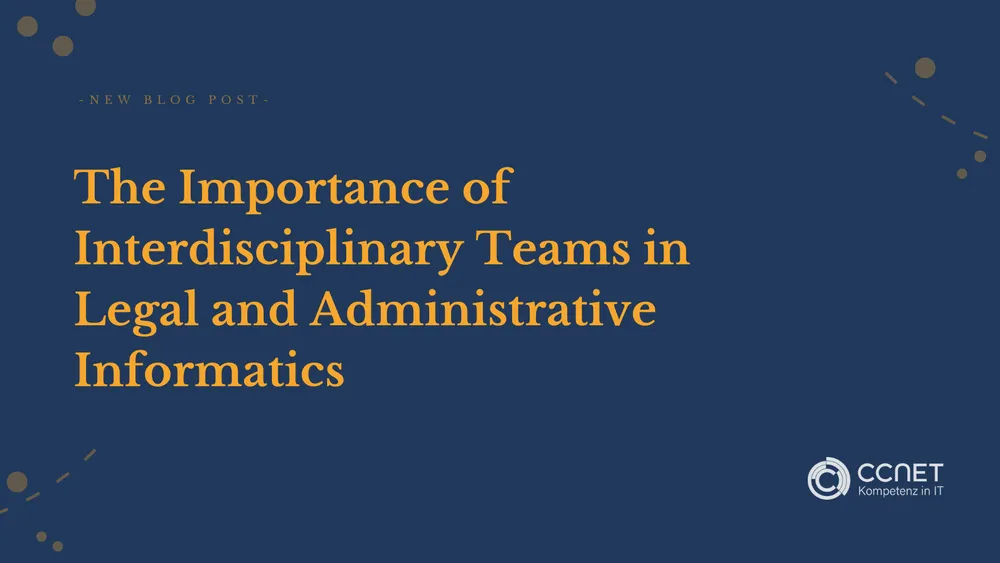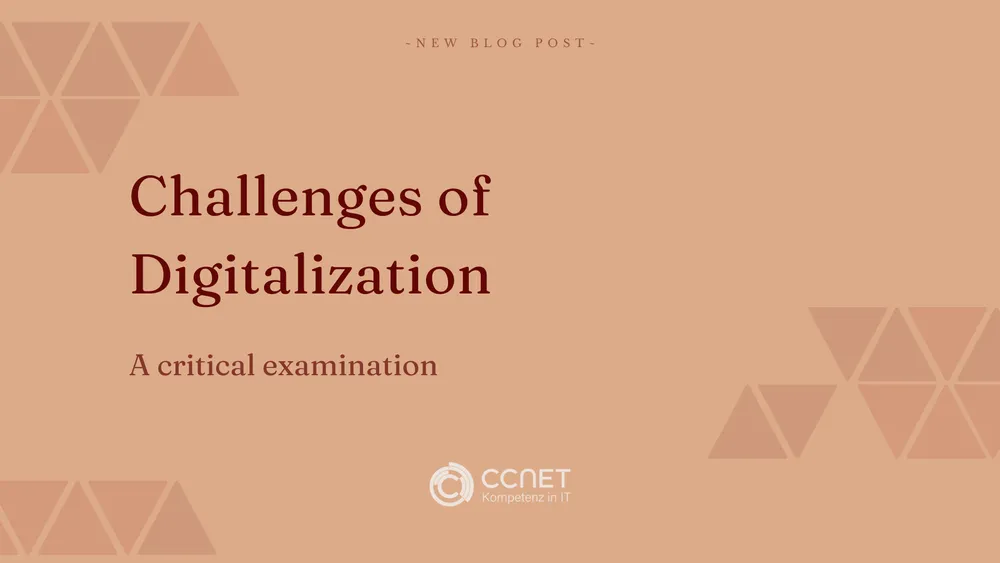
CCNet
Jul 24, 2024 • 3 min read

The Role of Blockchain Technology in the Legal Sector
Blockchain technology, known for its revolutionary application in cryptocurrencies like Bitcoin, is beginning to significantly impact the legal sector. This blog post explores how blockchain is transforming the legal field by offering new opportunities for transparency, security, and efficiency in legal transactions. Besides improving trust and traceability in contract execution, blockchain also enables the development of innovative smart contract solutions that can automate and secure complex transactions. These developments have the potential to fundamentally transform legal systems and revolutionize how legal transactions are conducted.
Further information can be found here: Data-Science
Blockchain Basics in Law
Blockchain is a type of distributed ledger technology (DLT) that allows transactions to be recorded on a decentralized database. The strength of blockchain lies in its ability to store data in a tamper-resistant and transparent manner, making it ideal for applications with high security and trust requirements. Blockchain technology has the potential to revolutionize many areas, including financial services, supply chain management, and digital identity management.
Smart Contracts: Automating Legal Agreements
One of the most notable applications of blockchain in the legal field is smart contracts. Smart contracts are self-executing contracts whose terms are written directly into code executed on a blockchain. These contracts automate the execution and enforcement of contract conditions, reducing the need for manual intervention and lowering the potential for human error or fraud. By integrating smart contracts, companies and organizations can optimize their contract processing, speed up processes, and improve transaction security.
Transparency and Security
The immutable nature of blockchain provides increased transparency and security for legal documentation. Each transaction is stored in a block, which is appended to a chain of transactions, making tampering virtually impossible. This is especially beneficial for documenting property rights, notarizations, and other legally relevant documents susceptible to forgery or revisions. Integrating this technology into legal practice is increasingly recommended by experts.
Applications in Civil Law
In civil law, blockchain applications are particularly used for processing and documenting contract conclusions. The technology allows for the secure and transparent documentation of legal fictions, circumstances, or data changes, which is especially relevant in the context of digitally programmed contract conclusions (smart contracts). Blockchain provides an immutable record that ensures contract integrity and improves the traceability of transactions.
Challenges and Legal Frameworks
Despite the many advantages, integrating blockchain into the legal system also presents challenges. Legal frameworks often need to be adjusted to accept and regulate new technologies like blockchain. Questions about the legal recognition of digital signatures and the validity of blockchain-based contracts must be resolved. A comprehensive review of existing laws and guidelines is required to meet the ever-evolving demands.
Conclusion
Blockchain technology has the potential to transform the legal sector fundamentally by offering new forms of automation and security. While the technology is still in its early stages, its impact is already apparent, and its future development promises to reform many aspects of legal and contractual practices. However, implementing this technology requires a careful review of existing legal frameworks and the establishment of standards to ensure a smooth integration. The role of legal professionals in this process will be crucial to navigate and shape these changes effectively.
Are you interested in more information on the specific laws that need to be amended to fully integrate blockchain technology, or would you like to dive deeper into the technical details of this technology?
What is blockchain and how does it work in the legal system?
Blockchain is a form of distributed ledger technology (DLT) that stores transactions in a decentralised manner and makes them tamper-proof. This technology offers transparency, security and trust for applications in the legal sector, particularly when documenting transactions and contracts.
What are smart contracts and how are they supported by blockchain?
Smart contracts are self-executing contracts written directly in code and executed on a blockchain. They automate the execution and enforcement of contract terms, reducing the need for manual intervention and reducing the potential for human error or fraud.
What advantages does blockchain technology offer for transparency and security in the legal sector?
The immutable nature of blockchain ensures increased transparency and security for legal documentation, as transactions can no longer be manipulated or falsified. This feature is particularly beneficial for the documentation of property rights and other legally relevant documents.
In which areas of civil law is blockchain used?
In civil law, blockchain is primarily used in the processing and documentation of contract conclusions. It enables secure and transparent documentation of legal fictions, circumstances or data changes, especially in the context of smart contracts.
What are the legal challenges involved in integrating blockchain?
The integration of blockchain into the legal system requires the adaptation of existing legal frameworks, including the recognition of digital signatures and the validity of blockchain-based contracts. A comprehensive revision of the laws is necessary to meet the technological requirements.


